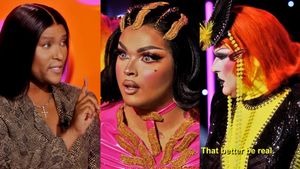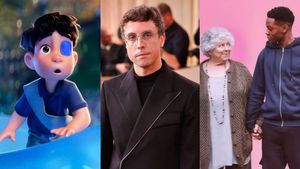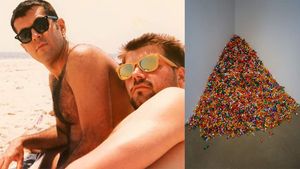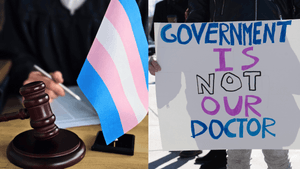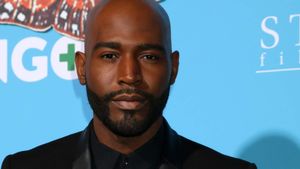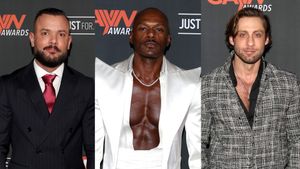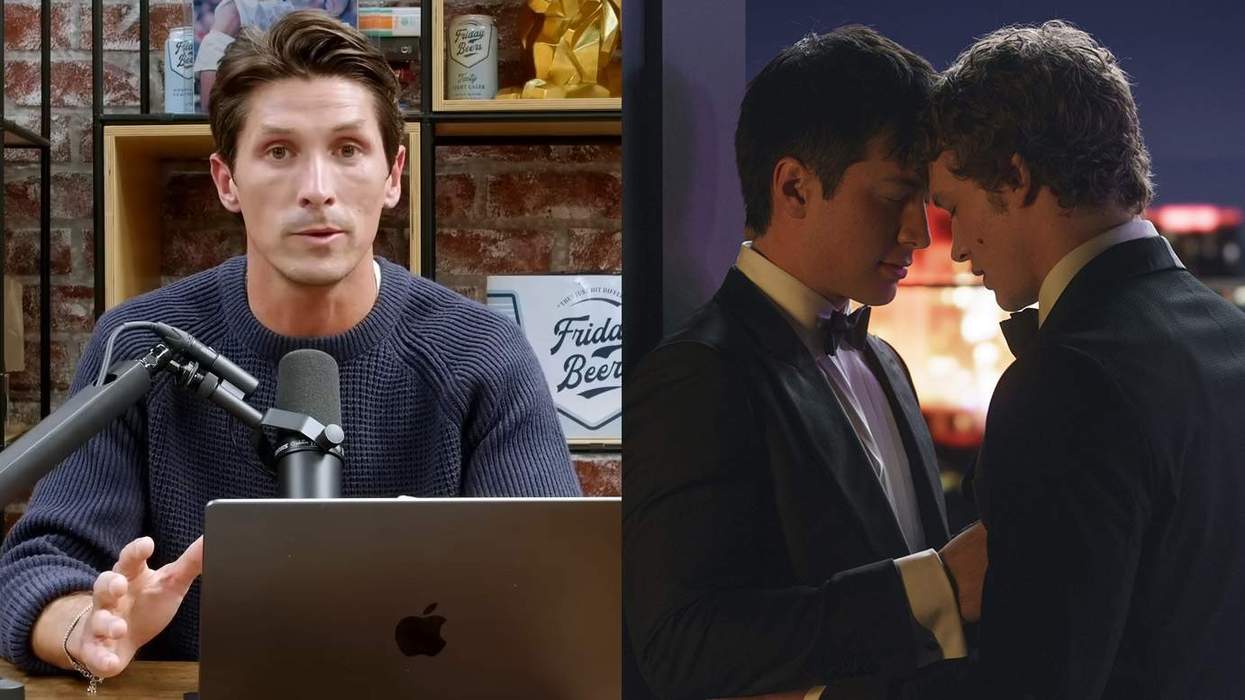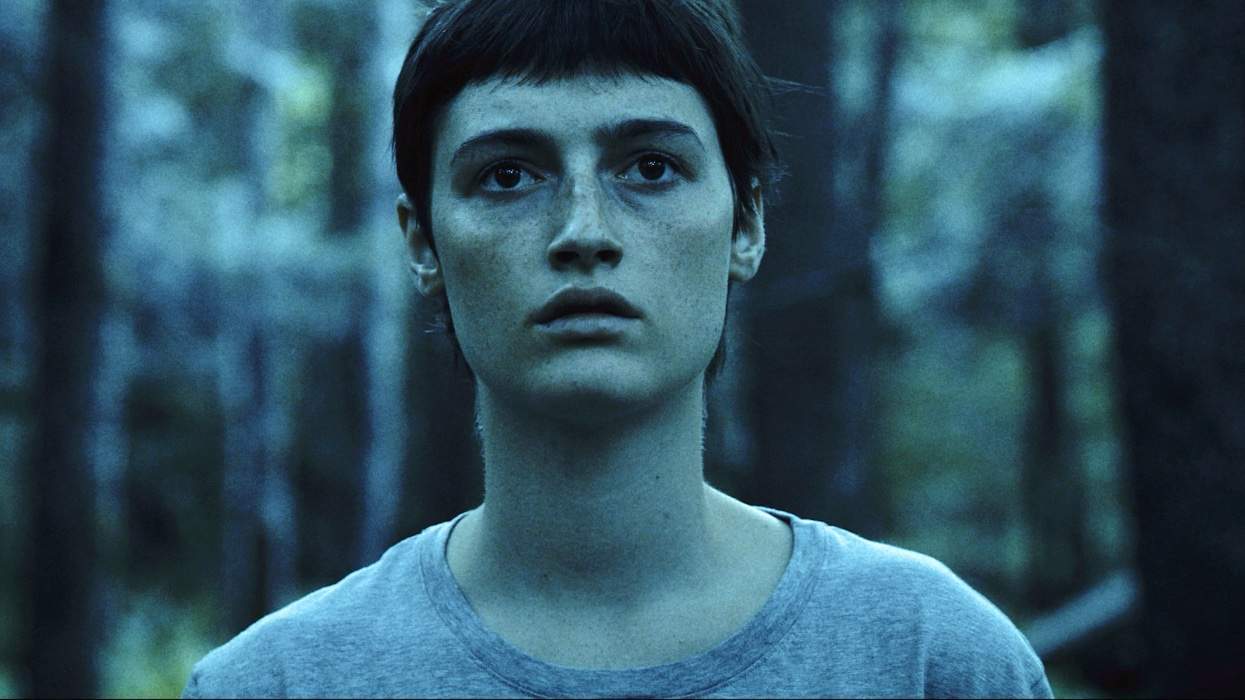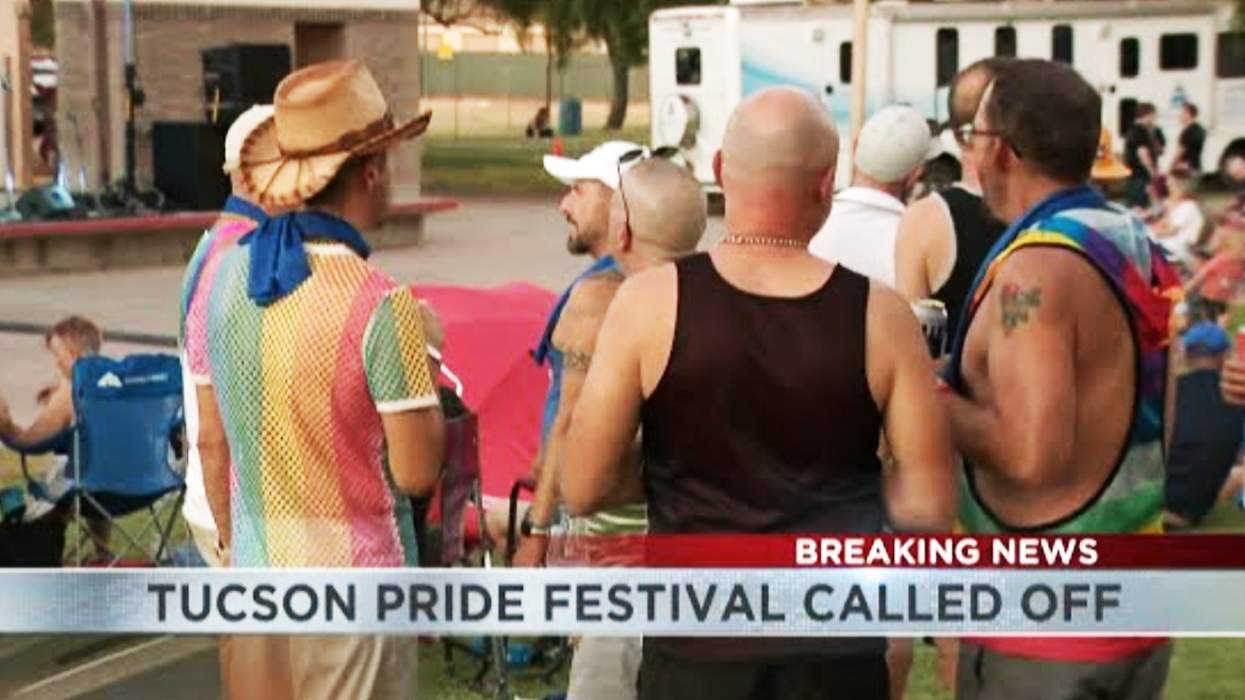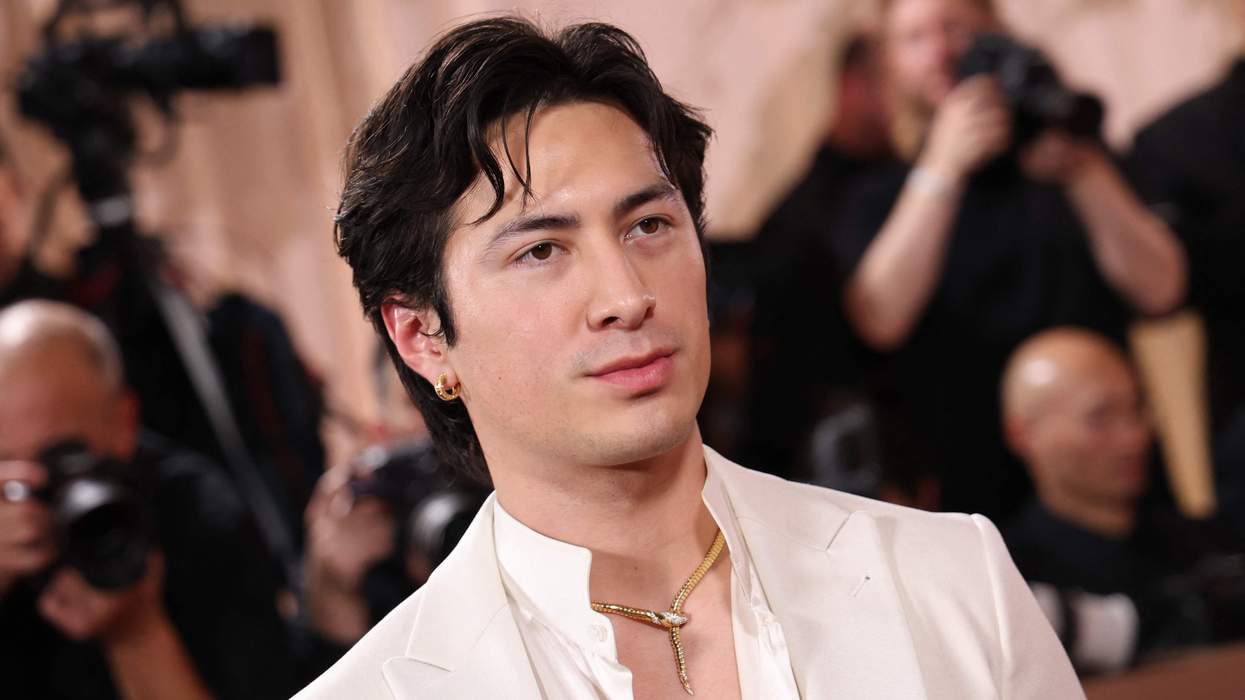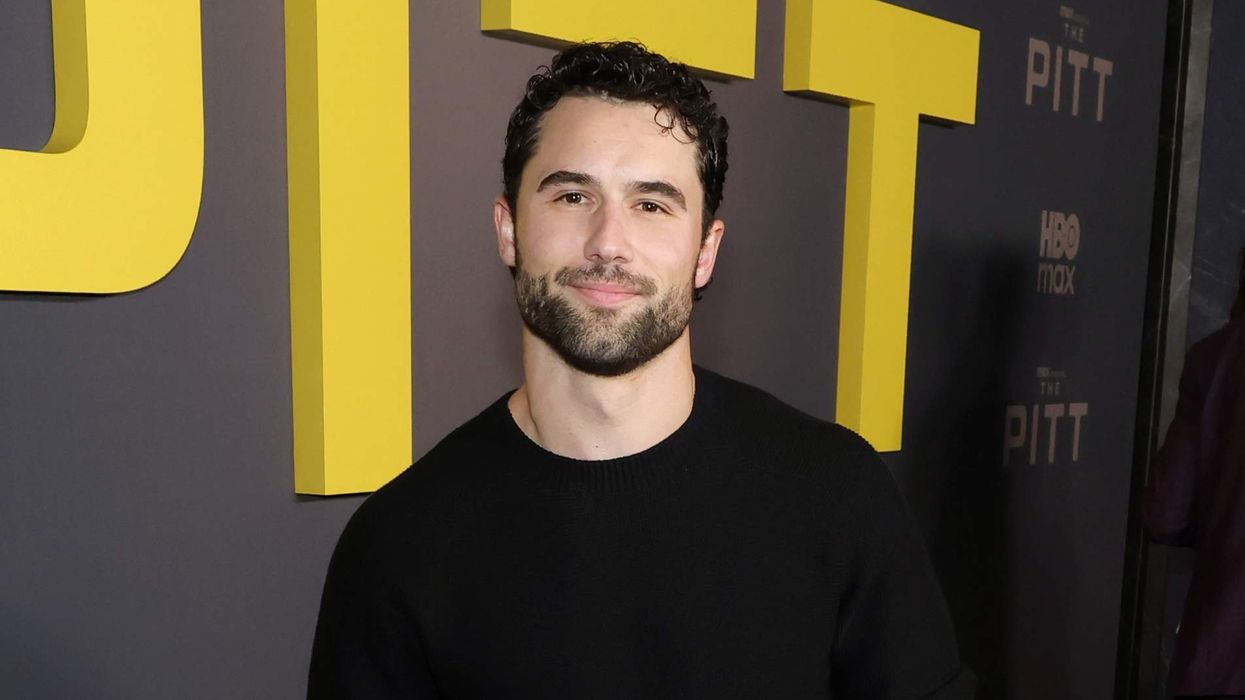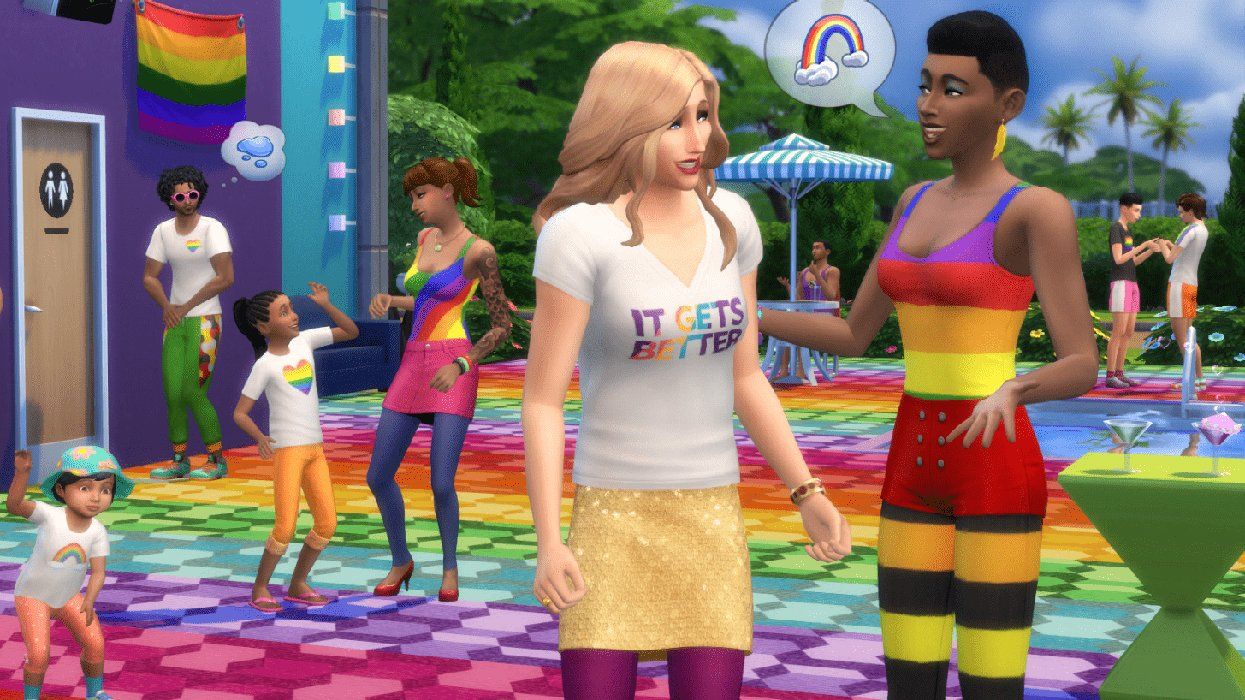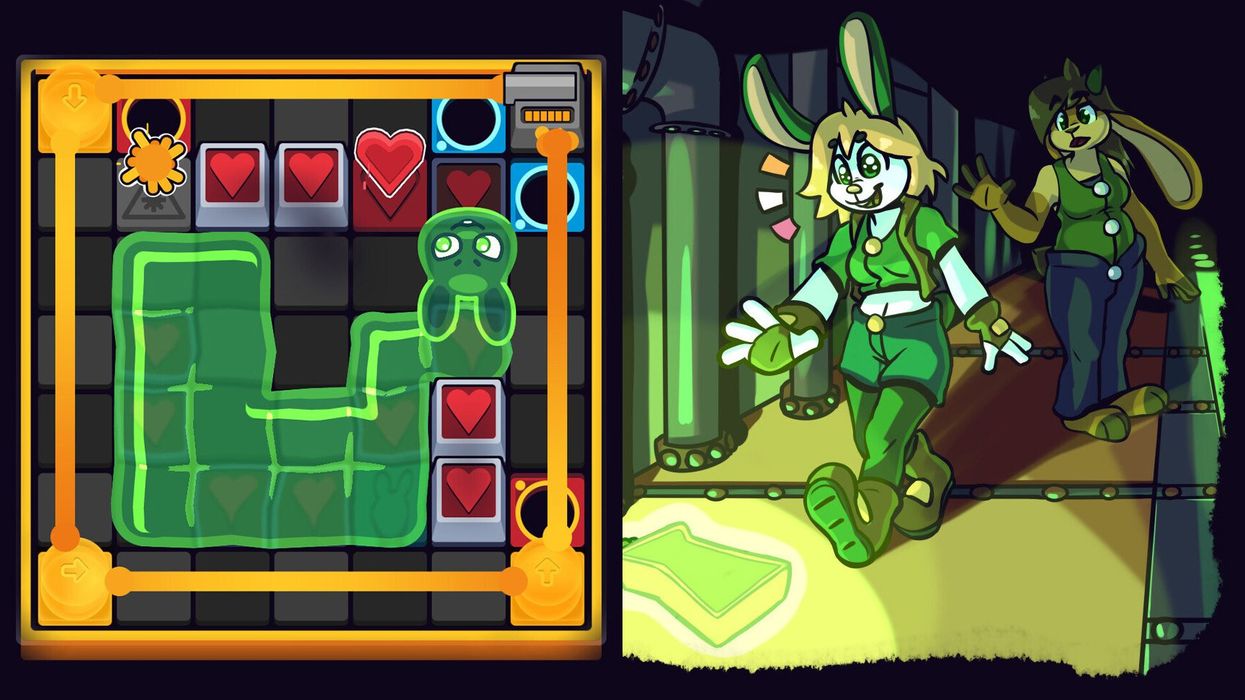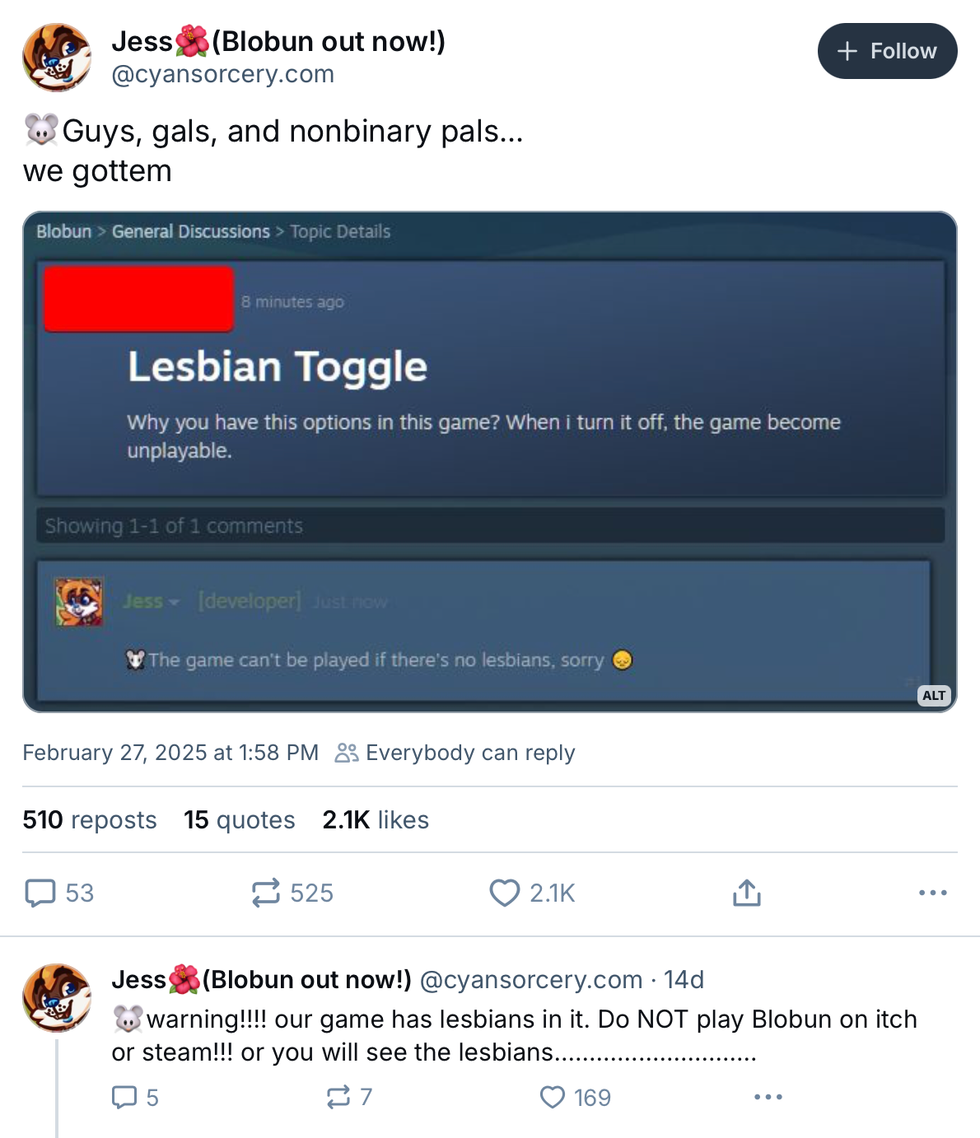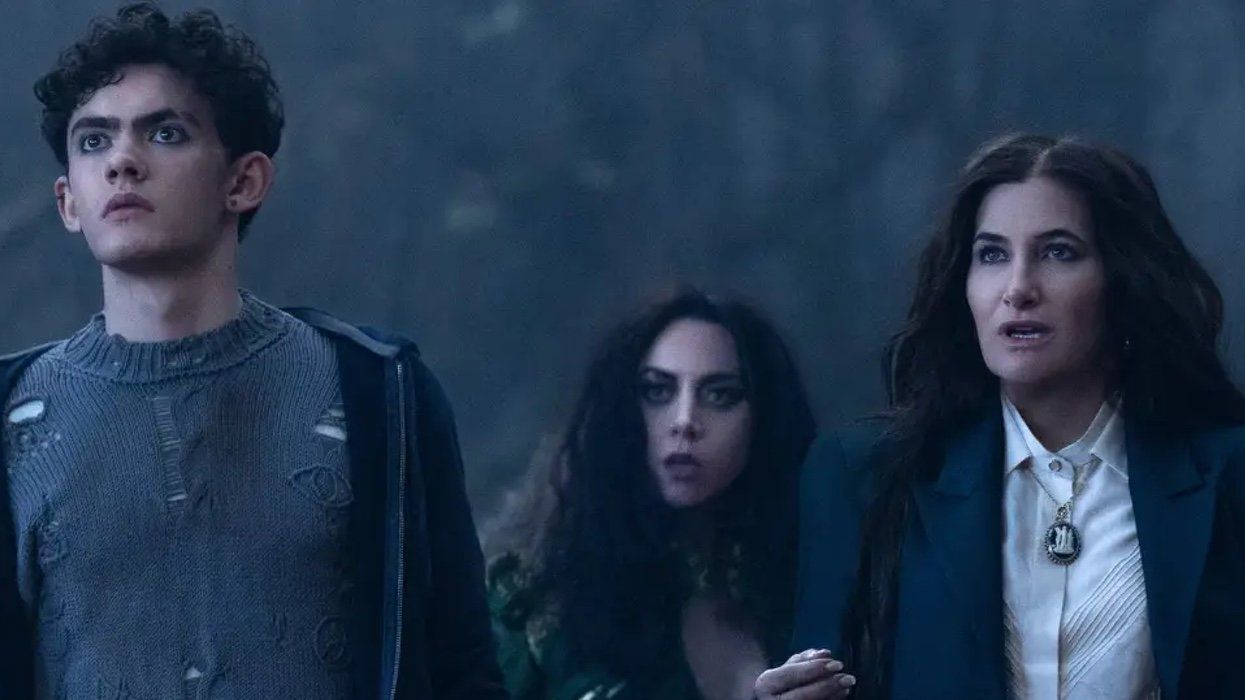There has been quite the schism building in the Star Trek community these past few years. Since debuting around the same time in late 2017, both CBS All Access' flagship series Star Trek: Discovery and FOX's Seth MacFarlane comedy The Orville have been competing for the love of Trekkies everywhere. While Discovery’s focus on serialized storytelling and movie-quality look seems to be driving the franchise in a new direction, The Orville’s episodic structure makes it feel like the classic, '90s Star Trek: The Next Generation. And this juxtaposition of new and old visions for Star Trek-like stories has sparked debates within the Trekkie community.
Both shows centered LGBTQ storylines this past week, and comparing the flaws and successes of each of them reveals a lot about how far we’ve come—and how far we have to go—when it comes to queer storylines on TV.
On The Orville’s latest episode "Deflectors," celebrated Moclan engineer Locar (guest star Kevin Daniels) reveals his attraction to Lieutenant Talla Keyali (Jessica Szohr), a woman. The problem is Moclans are a predominantly male race and Locar’s attraction to a woman like Talla is condemned by and illegal in Moclan society. After kissing Talla, Locar’s sexuality is discovered by the Moclan Klyden (recurring star Chad L. Coleman), the husband of Locar’s ex-boyfriend, Lieutenant Bortus (Peter Macon). An outraged Kylden promises to report Locar to the Moclan government. Locar fakes his own death and frames Kylden. In the end, Talla discovers Locar’s deception, and convinces Locar to face punishment rather than let an "innocent" man (Kylden) face charges. Our final glimpse of Locar finds him being dragged out of a Moclan courthouse in cuffs.
The Orville has featured several stories revolving around Moclan society, including a flawed but well-intentioned intersex/gender discussion last season. In each instance, Moclans prove to be incredibly close-minded, forcing unconsenting surgeries on female-born children against their parents wishes, as well as condemning any sexualities or interspecies relationships outside of the male Moclan-only romances. "Deflectors" ends with The Orville’s Captain Mercer (Seth MacFarlane) reflecting on how long the Moclans' backwards views can be tolerated in utopian society.
On Discovery’s "Saints of Imperfection," Lieutenant Stamets (Anthony Rapp) discovers that his partner Dr. Hugh Culber (Wilson Cruz) lives trapped in another dimension. This revelation is all the more shocking considering that Culber was murdered last season, leaving Stamets a widower. Stamets unknowingly saved Culber by sending his consciousness to this other dimension, and he pulls Culber out of madness in a touching scene where Stemets recalls their first date. Later, in a heart-wrenching moment, it appears that Culber can’t leave this dimension and must die, yet again, in front of his love. However, Stamets and the Discovery crew find a way to pull Culber back to our world at the last moment, reuniting the formerly star-crossed lovers.
Discovery’s latest storyline seems to be the writers fixing one of the previous season’s biggest flaws: the unceremonious killing of one of the historically inclusive franchise's celebrated gay cast members. While Culber’s resurrection may have been planned from the start (CBS and Cruz hinted at Culber's return on Twitter the night the death aired), the burying of one of television’s few gay character of color left a bitter taste in the mouths of many LGBTQ fans. Discovery’s first season attempt at darker storylines in order to earn Trek’s typical optimistic outlook put off many long-time Trek fans, so to end this episode with Stamets being reunited with his better-half was a welcome development for fans.
It’s worth noting that both The Orville and Discovery’s LGBTQ storylines focused on the supposed death (and resurrection) of gay characters. Despite both shows taking place in futuristic utopias, it appears that gay characters still can’t escape the spectre of death. It’s frustrating that despite aiming to showcase a wonderful new future for all of humanity, LGBTQ viewers still have to deal with the trauma of watching ourselves die. It's a common frustration that LGBTQ viewers have become all too accustomed to with our on-screen representation, and it’s a trope that both show’s writing teams appear to be all too aware off, with both ultimately refusing to commit to the decision.
This is the second episode of The Orville to end on a dark note for LGBTQ characters. Both "Deflectors" and season one’s "About a Girl" resolve with members of the LGBTQ community failing to overcome oppressive societies despite the best efforts of The Orville’s crew. Meanwhile, Discovery’s "Saints of Imperfection" ends by letting it’s queer couple flourish yet again. Despite dealing with death, we’re never given the impression that Culber or Stamets have ever had to deal with discrimination due to their sexuality.
These differing resolutions reflect each show’s differing visions and views of their audience. The Orville writers assuming that viewers need to learn about the LGBTQ community. The show even evokes real-world oppression by having Locar’s murder take place in a virtual simulation of 1940s New York City, a time and era well-known to be hostile towards the LGBTQ community. By ending darkly, it hopes to inspire it’s audience to reflect on real-world prejudices and how they need to be stopped. The Orville attempts to teach this lesson by centering straight-looking relationships. Lorac isn’t oppressed for being a man who loves another man. Instead, he is oppressed for being a man who loves a woman. While it makes sense in-universe, the oppression of a straight-seeming character comes across as saying 'How would you feel if it was you who had to face this type of situation?' It tries to speak directly to a straight audience at the expense of a queer one.
\u201cPractice makes perfect. #BehindTheScenes #TheOrville\u201d— The Orville (@The Orville) 1550210700
The Orville also tries to center individual morality tales each episode, but this sometimes ultimately feels old-fashioned. Star Trek: The Next Generation did almost beat-for-beat similar stories all the way back in the 1990s, with episodes like the transgender/sexuality-focused "The Outcast." While The Orville attempts to teach a lesson that many still need to learn, it also ultimately feels outdated.
On the flip side, this season's Discovery writers create episodes assuming that their audience either IS queer or openly accepts queer people. Discovery doesn’t try to preach to or teach it’s audience that gay people should be a part of a hopeful future. Instead, LGBTQ folks just exist in the Starfleet, earning the same respect, admiration, and opportunities as anyone else. Discovery also shows queer culture as being integrated into society, with the show referencing RENT or David Bowie as much as hetero art like Funny Face or Betty Boop. This shows that one day, society will normalize queer people and queer culture in a way that feels so refreshing to see in a modern world still embroiled in debates around conversion therapy or transgender rights.
With all the being said, I'm not sure what vision is needed more right now. While The Orville is retreading old ground, it’s lesson of how queer oppression needs to be eliminated is sadly still relevant. The social media debaters who constantly yell 'Gay relationships are being forced down my throat!' whenever Discovery includes even a single, tiny LGBTQ moment in the show sadly proves that point. Compound that with the fact that The Orville airs on the primetime network FOX, which reaches more communities and people than CBS All Access' niche audience, it’s hard to argue that The Orville shouldn’t continue its efforts. Conversely, Discovery actually allows queer people to see ourselves living in in a harmonious utopian future that respects diversity of identity and remains steadfastly focused on hope and exploration. As a queer person who finds herself inspired every time Culber and Stamets get to celebrate their love, I need that type of story now more than ever.
I've been a Star Trek fan since I was nine years old. I love both The Orville and Discovery. Despite many Trekkies debating across the internet about which show is "true" Trek, I think both shows ultimately reflect different (but valid) facets of Gene Roddenberry’s original vision. This year, both shows have continued to improve themselves over their freshmen outings. While The Orville seems to go where other Trek shows have already gone before, it perhaps is speaking to the next generation that still needs to hear it’s message. Discovery may be boldly going where few have gone before and speaks to me personally on a stronger level, but it may ultimately leave some fans behind as a result. It sometimes pains me to know how far we have yet to go, but it’s nice to know that no matter what, television keeps trying to explore that final frontier.
Jessie Earl is a video producer for Microsoft Unboxed, as well as her own transgender and geek-focused YouTube channel. Follow her here!










